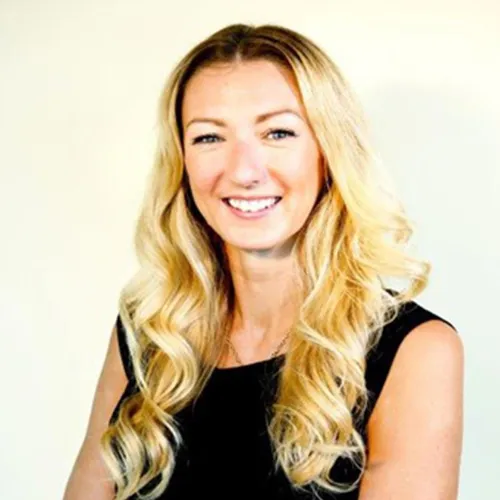First Time Buyer
At JB Mortgages we offer the personal attention required to find a perfect fit at the lowest interest rates available for your circumstances.
- Access to competitive rates and some you can't get direct
- Specialist Mortgage Advisers
- You'll experience an unrivalled customer service
What's On This Page?
Get In Touch
Home » First Time Buyer

First Time Buyers
All about mortgages for First Time Buyers with Emma Sadler-Mason.
How is the mortgage process different for First Time Buyers?
It’s different because there’s no previous property to sell – it’s your first ever home. You’re going to need a deposit to put down, as a cash lump sum which covers part of the cost of the property. The larger the lump sum you’re able to raise, the better the terms for the mortgage. You’re likely to get a better interest rate when you’ve got a higher deposit.
You can borrow some deposit from relatives, but in most cases lenders like some of the money to be your own. You might have some savings or a Help to Buy ISA that you’ve been paying into – that always helps, as you get a bonus. But generally a cash deposit gets you a better mortgage term when purchasing your first property.
What is an Agreement in Principle?
There is a lot of jargon in mortgages! An Agreement in Principle is indicative evidence of what you can borrow. We do a lot of work beforehand and then check out with the lender that your application would be accepted to buy the property.
Estate agents often ask for an Agreement in Principle to show that you’ve got a genuine interest, you’re serious and you want to go ahead. It lets them know that you are able to buy from an affordability perspective.
What deposit is needed for a First Time Buyer?
This varies. The minimum at the moment is 5%, so you’d need to raise a 5% deposit to buy your property. On a £250,000 property that would be £12,500.
Some news has recently come out that Skipton Building Society is looking to launch a 100% mortgage which would require no deposit at all [podcast recorded in April 2023].
They’re just trying to get that approved with the Financial Conduct Authority and if it goes through, a lot of lenders are likely to follow suit. It’s probably going to be that quite specific people can have that mortgage, but it could help a lot of those that have been struggling to raise a deposit.
How do I know what my credit score is and how do I improve it?
The credit score is really important – it’s a picture of your overall finances and it helps lenders decide if a person is a good risk to lend money to. It gives a fairly accurate story of how you’ve behaved financially over the last six years: particularly if you’ve paid credit cards and loans on time.
You might have had a couple of missed payments, which would be shown, and if there have been lots of credit searches in recent months that could be a bit of a red flag to a lender. It suggests that someone is struggling for money. But all of this helps lenders decide whether to accept you and how much they’ll lend.
To improve your score, it’s really important that you get registered on the electoral roll to evidence where you live. Make payments on time. Keep your credit utilisation low. If you’ve got any credit cards open that you’re not using, close them down. Open credit on your report could go against you in how lenders calculate affordability.
What is the First Time Buyer ISA and is this still available?
A First Time Buyer ISA, known as a Help to Buy ISA, was a tax free savings option but you got a bonus from the government, which all went towards your first property. These are no longer available but they can still be used. People are still coming to us and saying I’ve got a Help to Buy ISA, which is absolutely fine.
You can now get a Lifetime ISA instead, which works in a very similar way. You get a 25% bonus of the savings which is up to a maximum of £1000 per year. If you saved £4000, which is the maximum you can save, this can be used towards a first home. Or, it can also be used into retirement as a retirement savings plan as well. So there are more options to the Lifetime ISA.
Speak To an Expert
Everyone’s different. You might be self-employed. You might have some credit history issues – whatever your situation, we will find the most suitable product available to you from across the whole market.
What other help or schemes are available for First Time Buyers?
There are a few different schemes. Shared ownership is a popular one, particularly in London. These let you bank a share of the property rather than buying the whole thing. You’ll need a smaller mortgage and less deposit, but you do have to then pay rent on the part that you don’t own.
It’s important to look at all of the options and costs, because if it’s a flat, there could be a service charge to pay as well. But that’s what we’re here for, to check all those costs for you.
What fees are involved when buying your first home?
I always like to be clear about fees upfront. There are different fees, starting with stamp duty. When you’re a First Time Buyer you can actually buy a property of up to £425,000 without paying any stamp duty. From there it’s a percentage of the value of the property.
There are mortgage fees and broker fees which we detail in all of our quotes so you know right from the outset how much you’re going to need to pay.
There are also conveyancing fees for searches and checking the legal status of the property. The solicitor draws up all of the documents and makes sure everything goes smoothly with the ownership of the property.
We always say it’s around £1,750 but if there’s a Help to Buy ISA, for example, the solicitor will charge more to close that down and release that money. Lots of different little things might make it cost a little bit less or more.
Can you help with mortgage protection?
We can, and it’s probably the most important part of the process. As much as it’s important you have your own property, it’s even more important that you can maintain that property and pay the mortgage should anything happen – should you be unable to work or you become ill.
It might be that you get sick pay from your employer. But how long do they pay that sick pay for? Are you going to be relying on one income? Protection is a critical part of the process and it can cost as little as £5 a month up into the hundreds of pounds depending on your age, smoker status, how much alcohol is consumed in a week or if there are any medical conditions.
There are lots of factors to look at, but it is very important. If budget is an issue for you we will try and make sure that you have some cover, rather than no cover, to fit your budget.
How can a mortgage broker like JB Mortgages help a First Time Buyer?
We’re a really friendly bunch and we just want to answer any questions. I like dealing with First Time Buyers – it’s exciting, but it can be very daunting for you.
So I’m here all the time – you can Whatsapp me or call me as many times as you want. I’ll go through each stage with you and clearly explain what happens next. I’m always at the end of the phone.
Your home may be repossessed if you do not keep up with your mortgage repayments.
As Seen In . . .



If you’re a first-time homebuyer looking for a mortgage, our team of mortgage of mortgage advisors is here to help. We can assist you in finding the perfect mortgage for your first house.
We have put together the below first time buyer guide, which can help answer frequently asked questions:
What is a ‘First Time Buyer’?
You are a first time buyers if you are looking to purchase your first property and have never owned a property before.
You do not qualify for a first time buyer mortgage if you have previously owned a property, or if you have inherited property from a family member. Similarly, if you own a house or flat but your partner does not, and you want to purchase somewhere together, you will not be eligible for first time buyer mortgage schemes.
How much deposit will I need?
You will need a minimum deposit of 5% of the purchase price, which would mean you would need a 95% loan to value (LTV) mortgage. As a 5% deposit is generally the minimum deposit needed, the amount of mortgage products available on the market will be limited.
The larger deposit you have, the wider your choice of mortgage product will be. You’ll also benefit from lower interest rates as mortgage lenders consider first time buyers with bigger deposits as lower risk than those with only a small deposit, so if you proceed with a 10%, 15% or 20% deposit, you will have access to more mortgages on cheaper interest rates.
Mortgage lenders can accept your deposit from personal savings or via a gift deposit from a family member or friend.
Speak To an Expert
Everyone’s different. You might be self-employed. You might have some credit history issues – whatever your situation, we will find the most suitable product available to you from across the whole market.
How much can I borrow?
The maximum mortgage amount you can borrow will vary from mortgage lender to mortgage lender.
Most mortgage lenders will allow you to borrow up to 4.5 x your annual income – for example if you and your partner earn £25,000 each (£50,000 in total), you might be able to borrow £225,000 subject to meeting the mortgage lenders affordability criteria.
Mortgage lenders will need to know about all your outgoings, such as:
- Credit card balances
- Unsecured loan balances & monthly payments
- Car finance balances & monthly payments
- Student loan payments
- Childcare costs
- School fees
Some banks or building societies will allow you to borrow up to 6 x your annual income. These higher income multiples would mainly apply to first time buyers with larger incomes and larger deposits.
As Seen In . . .



